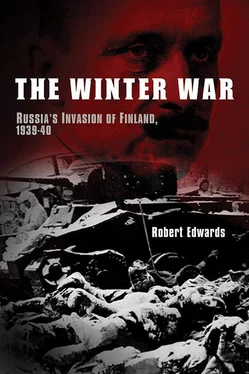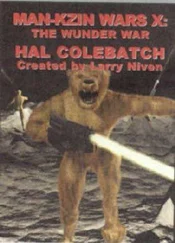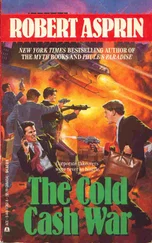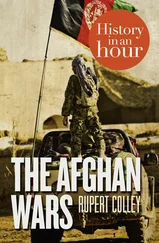See H. B. Elliston, Finland Fights, p. 112.
Ibid., p. 115.
A separate convention from the Treaty of Tartu, although obviously associated with it. Moscow (indeed, Stalin) had signed the Treaty of Tartu—having granted Finnish independence and then lost the attempt to scupper it, they had no choice—but the Ålands were another matter and the Soviet Union did not sign the 1921 convention, which was sponsored by the League of Nations.
Jakobson, The Diplomacy of the Winter War, p. 35.
C. V. Wedgwood, The Thirty Years War I Jonathan Cape, 1944) p. 275.
The infantry were more often Scottish.
Yartsev was a work name; his real name was Rybkin.
Jakobson, The Diplomacy of The Winter War, p. 8.
Jakobson, ibid. , p. 26.
To be precise, Finnish exports to the USSR comprised 0.6 per cent of total trade and imports 1.9 per cent of the same, by markka volume. Given the huge mutual border, observers have noted that in economic terms this amounted to virtual blockade.
Wuolijoki was totally deranged, in the view of some, but certainly a Comintern agent as well as queen bee of the limousine left. An Estonian by birth, she also wrote under the pseudonym of Juhani Tervapää. She worked with Bertholt Brecht, while he lived with her in 1940 at her grand country house, the Villa Marlebäck, in the village of Iitti, north-west of Helsinki. She had been married, briefly, to the Social Democrat M. P. V. Wuolijoki, who was a close associate of Kuusinen, and whom Tanner had known as well as he wished.
One of Kuusinen and V. Wuolijoki’s first cooperations had been the translation of ‘the Internationale’ into Karelian, for repetitive broadcast into Finland from the Soviet Union.
Both Tanner and Ryti studied trade and commerce with an all-consuming passion; Tanner in order to strengthen the co-operative movement land stamp hard on any poujadiste tendencies which might emerge elsewhere—he had little time for shopkeepers) and Ryti as a theoretical, even philosophical matter. Both men clearly missed the point concerning Soviet advances on this—trade, like everything else, was but a single piece of a very complex ideological jigsaw.
A good example was Corps Commander Vitovt Puma, Soviet military attaché in London, recalled in September 1936 and executed in the same week as Tukhachevski.
Or more probably Otto Kuusinen, who was a prolific, if talentless, ghost writer.
A more twenty first-century job title would be Minister of Diversity within the Soviet Union.
He was General Secretary by 1923 (his name appears on the famed Zinoviev letter—he may even have written it).
I think he meant majority, see D. N. Pritt, Must the War Spread? for a fuller text.
It has been estimated that up to 30,000 ‘Reds’ died in captivity in the spring of 1918.
See Conquest, op. cit., p. 432.
Variously known as the Civil Guard, the Civic Guard, the White Guards and, by the far left, the Schutzcorps, to create linkage, inaccurately, with the Schutzstaffel— SS—in Germany. It was, of course, nothing of the sort.
Named, apparently at Mannerheim’s suggestion, after the wife of a soldier in Runeberg’s epic poem.
Mannerheim held Czechoslovakia in no particular regard, for reasons that went back to the Russian civil war—the Czech Legion had handed over the White Admiral Kolchak to the Bolsheviks—for money —with predictable effects upon his life expectancy.
Mannerheim, Memoirs, p. 296.
In contrast to General Gamelin’s publicly stated confidence.
Mannerheim. op. cit, p. 298.
In fact, he merely had to choose between being a League delegate or a minister—he was being paid for both jobs, which raised some auditors’ eyebrows, and he chose the League—the salary was higher!
His table manners while in Geneva had given some cause for offence; he had been overheard describing Adolf Hitler as a ‘madman’ and Mussolini as a ‘syphilitic demagogue’. He was possibly drunk.
Mannerheim, op. cit., p. 300.
The same day, Adolf Hitler—in the context of demanding a free hand in the East, particularly Poland—stated openly his intentions to Dr Carl Burckhardt (The League of Nations’ High Commissioner in Danzig): ‘All I intend is to take Russia to task [ gerichtet —this, with different emphasis, can imply an almost Biblical connotation]; the West is too stupid and blind to understand this. I have become swayed [persuaded?] to an understanding [ verstädndigen ] with the Russians, to attack the West, and then after their defeat, with my assembled strength, to turn on the Soviet Union. I need the Ukraine, so that no one need starve, as in the last war.’ C. J. Burckhardt, Meine Danziger Mission, p 348. This very free translation is mine.
Interesting that Hitler chose, outside his immediate circle, to confide in Burckhardt, a Jewish official of an organization of which Germany was no longer a member (but of which the USSR, in August, still was.) But see also Kershaw, Hitler, vol. II, pp. 201–3. See also Mein Kampf— rather a lot of it, in fact.
General Josef Doumenc was a staff officer to Gamelin.
Admiral Sir Reginald Aylmer Plunkett Ernle-Erle-Drax, admiral commanding the Nore.
Erkko to H. B. Elliston, December 1940.
Ironside Diaries, p. 106. Or, in Churchill’s case, pretended to be. On 26 July, he and Ironside had ‘made a night of it’ at Chartwell when, interestingly, Churchill had tabled a naval plan for the Baltic, later to be christened Operation Catherine.
Ibid .
And failed sisal planter, as his critics gleefully pointed out. See Graham Stewart, Burying Caesar.
There were isolated partisan actions, but not on an organized basis.
In fact, there were persistent (and often quite severe) border tensions between the two sides across the new boundary until June 1941.
Although Russian timing was largely driven by the completion of Zhukov’s battle at Nomonhan, it is quite possible that the Soviet Union had full knowledge of Gamelin’s initiative; on 27 September a clerk in the Communications Department of the British Foreign Office was arrested as a Soviet spy. He was jailed for ten years, after which a comprehensive land clearly necessary) ‘tightening up’ of security procedures took place. See Cadogan Diary (ed. D. Dilks), p. 208.
Читать дальше











